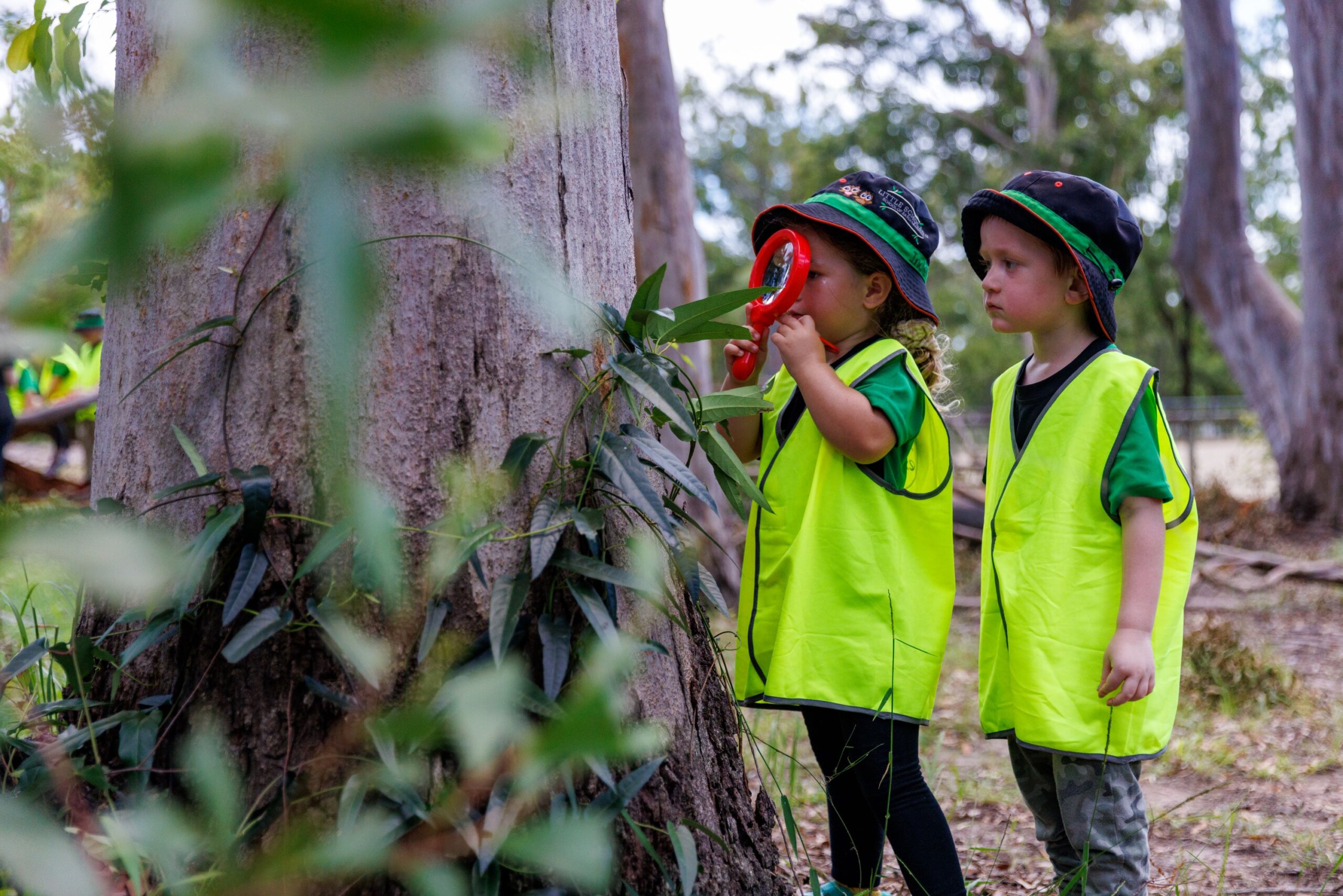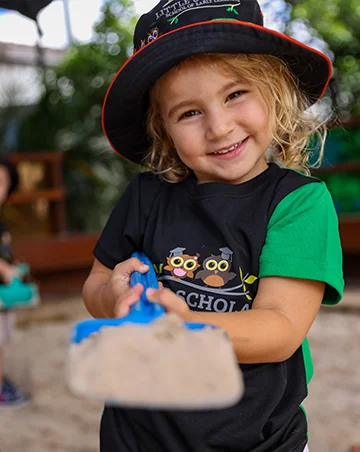Nature play isn’t a new thing, in fact, toddlers and kids of all ages have been indulging in nature play for centuries. The difference is these days it’s become alarmingly less the norm due to the advances in technology and extended periods of screen time. Our generation has also become more risk averse, concerned about children’s safety. But the benefits of nature play for toddlers are clear. Read on to discover how getting back to nature can help your child’s development.
What is nature play?
Nature play is the same as it used to be when you were a child – unstructured outdoor activities that connect children with nature. Anything from bike riding, gardening, walking, water play, making mud pies or playing in a cubby house is nature play.
Why is nature play important?
The benefits of nature play are incredible, and it’s no surprise that the children missing out on regular time in the great outdoors are falling behind or suffering mental health challenges. Let’s take a look at some of the major benefits of nature play for toddlers.
Self-confidence
When a child explores the outdoors, they try new things. They might try riding a bicycle, balancing on a log or going on a swing. Each time they try a new thing, they develop confidence within themselves; confidence to try again and eventually ride without training wheels, balance all the way to the end of a longer log or swing a little higher.
Problem solving skills
Not everything in the outdoors is presented perfectly, and that’s the beauty of it; it’s perfectly imperfect. The ground may have a slope, there may not be the perfect branch to complete a hut, and there may not be enough stepping stones to go over the ‘lava’! When kids play outdoors, they encounter all of these situations, particularly risky ones, and learn to make decisions and problem solve to find a solution. And when things don’t work out? They learn important life lessons in resilience.
Gross motor skills
Gross motor skills are important because they help a child build body strength and confidence. Gross motor skills can be developed outdoors doing activities such as riding a tricycle, climbing, engaging in water play, playing on a playground and drawing on the concrete with chalk, just to name a few.
Physical activity
It’s a pretty obvious benefit, but many toddlers and older children are still not getting enough physical exercise. Being active outside whether it’s kicking a ball, climbing, running, riding or skipping, helps children maintain a healthy weight, it reduces stress, mental fatigue and connects children with the real world.
How to fit nature play into daily life
Whatever time your child spends with a screen, swap it out for time in the backyard. If that’s too big of a change, try it in small increments until screen time is substantially reduced. You can also fit in nature play by scheduling regular family outings to the beach, on nature walks or bike rides and look for outdoor events near you with fun activities for the kids.
The best thing about nature play is that you don’t have to plan it – nature play is best unstructured because it leaves room for imagination and discovery. Give your children the opportunity and encouragement to do it, and they will benefit now and through to adulthood.
Take a look at our early learning campuses where we embrace nature play as a crucial part of the curriculum.



